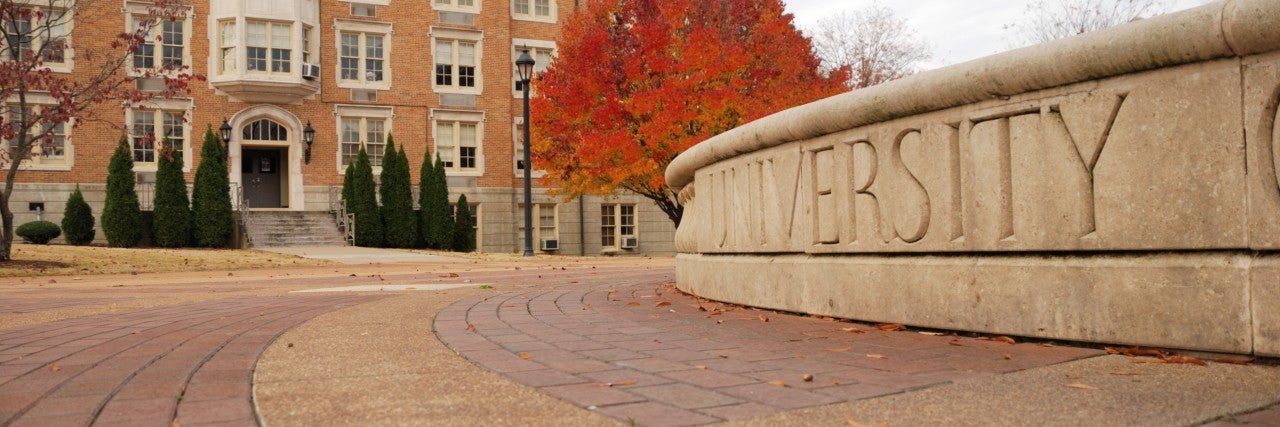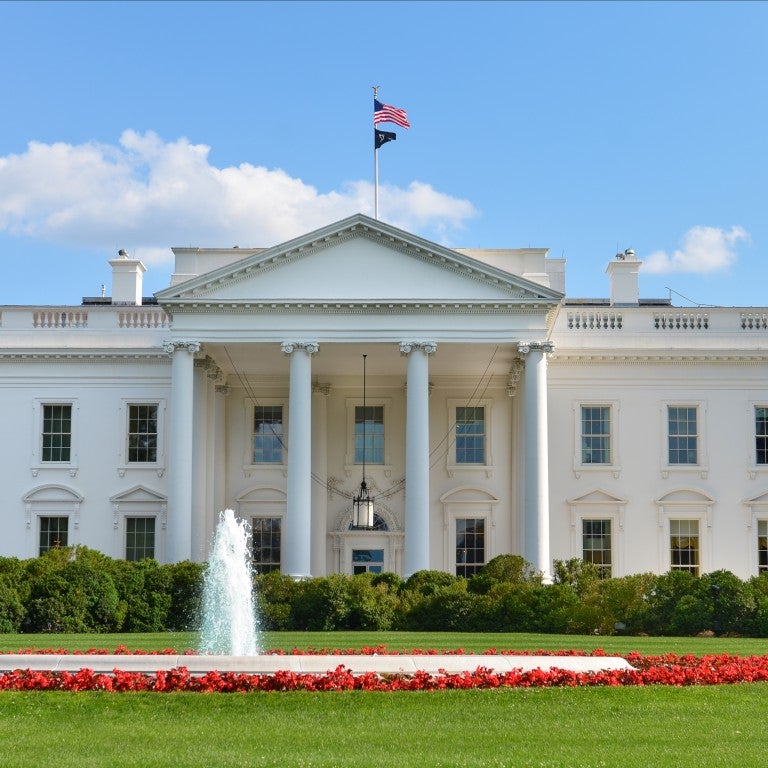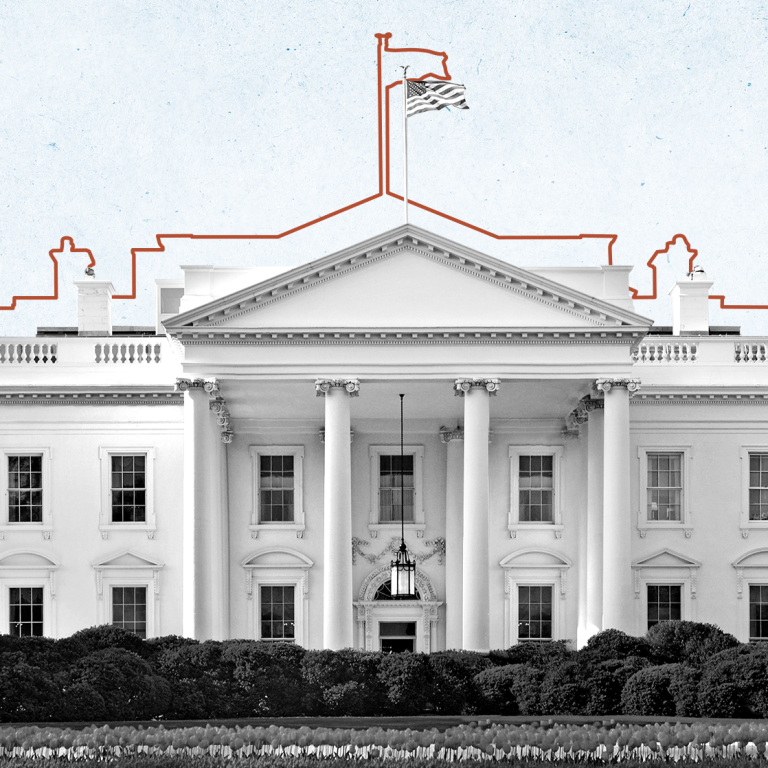August 8, 2023
When Northwestern University student Lily Cohen left New Jersey to attend college in suburban Chicago, she never expected to walk across campus and see antisemitic slogans on full display.
Sabrina Soffer also wasn’t prepared to face unapologetically anti-Israel rhetoric from some of her professors and peers at George Washington University.
For both women, the hostility they witnessed toward the Jewish state is part of a larger struggle Jewish students face on campus of verbal or physical harassment in response to the actions of the State of Israel, which is a form of antisemitism. Despite the adversity, this helped strengthen their deep connection to Israel. Both found vibrant Jewish communities on campus that made them even more proud to be Jewish and inspired them to seek change.
“For me, Zionist identity wasn’t a thing until I had to fight for it,” said Soffer, who has been tapped by the GW Student Association to lead a Special Presidential Task Force to Combat Antisemitism on campus.
This fall, American Jewish students are returning to university campuses with significant support well beyond their campus or Jewish communities: a U.S. National Strategy to Counter Antisemitism.
Introduced at the end of May, the National Strategy, which included many recommendations from American Jewish Committee (AJC), offers more than a dozen steps to curb the alarming rise of antisemitism on college campuses. At AJC Global Forum 2023, CEO Ted Deutch announced the formation of the AJC Task Force to Implement the U.S. National Strategy to Counter Antisemitism.
When students return in the fall, the U.S. Department of Education will roll out an Antisemitism Awareness Campaign to make sure schools don’t dismiss complaints of discrimination against Jewish students. AJC is working closely with university administrators and secondary school administrators nationwide to help effectively enact the recommendations this coming academic year.
Challenges and resiliency of Jewish students on campus
According to AJC’s State of Antisemitism in America Report 2022, one in ten American Jews with recent or current college experience have felt or been excluded from a group or an event on campus because they are Jewish. Slightly more (14%) have felt or been excluded from a campus group or event because of their assumed or actual connection to Israel. Just over a quarter (26%) say they have had trouble taking time off from class or have been told they could not miss class for the Jewish holidays.
Many students have discovered vibrant Jewish communities at campus organizations such as Hillel and Chabad where they can find inspiration, community, and opportunities to deepen their Jewish identity.
At the same time, the uptick of anti-Jewish rhetoric has led a significant number of Jewish students to downplay their Jewish identities. One in five American Jewish respondents (19%) have felt unsafe attending Jewish institutions with which they are affiliated because of antisemitism. One in five (23%) say they have avoided publicly wearing or carrying things that identify them as Jewish; and 18% with a current or recent college experience say they have ever felt uncomfortable or unsafe at a campus event because they are Jewish
But these statistics should not be misinterpreted, warned Meggie Wyschogrod Fredman, Senior Director of AJC’s Alexander Young Leadership Department.
“While we are witnessing a number of negative or hateful interactions directed toward Jewish students on college campuses, we are also seeing the continued vibrancy of young Jews and Jewish communities on campus,” she said, “Often such instances have actually galvanized and energized already active and dynamic centers of Jewish life on campuses across the country, as they courageously come together in the face of hate.”
Facilitating the White House action plan
Meanwhile, the AJC Campus Global Board made up of 30 students, representing eight different countries, and twenty-seven campuses, has begun working with AJC’s Campus Affairs department to take steps to facilitate the White House action plan on campuses nationwide. University administrators are only part of the solution.
The campus board wants students to know they have a deep bench of experts and resources available to help them educate their campus communities and create a more inclusive environment.
“The White House plan empowers Jewish students in an unprecedented way,” said Abe Baker-Butler, a junior at Yale University who serves as president of the AJC Campus Global Board. “It gives us confidence that our rights as Jewish students matter. It shows us that the federal government has our back in the fight against antisemitism.”
Unfortunately, many university administrators lack the knowledge that they need to discern instances where campus discourse about Israel can veer into antisemitism.
For instance, at the law school at the University of California, Berkeley, nine student groups adopted a bylaw that banned supporters of Zionism from speaking at events, while at the most recent commencement ceremony for The City University of New York (CUNY) Law School, students selected a speaker who accused Israel of “indiscriminate” murder, encouraged “lynch mobs” and lauded resistance to “Zionism around the world.” While CUNY’s Board of Trustees and Chancellor answered AJC’s call to condemn the vile rhetoric, they failed to explicitly label it as antisemitic.
Meanwhile, students returning last fall to the University of Wisconsin–Madison were greeted by chalk graffiti on the sidewalk accusing Jewish student groups that support Israel of being “racist,” “genocidal,” and “having blood on their hands.” Additionally, students at the University of California-Santa Barbara found antisemitic slogans scrawled on the blackboard of an Israel Studies classroom, while leaflets denying the Holocaust blanketed a nearby neighborhood.
According to the National Strategy, best practices for countering antisemitism, such as toolkits for parents with college-bound children or educators and administrators will be amplified rather than reinvented. One such toolkit is a curriculum developed by AJC Director of Academic Affairs Sara Coodin to help faculty, staff, and anti-Israel advocates understand why language such as accusing Jews of having blood on their hands is both offensive and dangerous.
Soffer said systemic antisemitism doesn’t feed the anti-Jewish hatred on campus. Systemic ignorance does. Meeting students where they are, identifying their knowledge gaps, and educating them is a vital step.
She would love to see a campus-wide Shabbat service that’s not sparked by an antisemitic incident, but simply a desire to share in the beauty of Jewish rituals.
Indeed, the National Strategy calls for the Department of Education’s Center for Faith-Based and Neighborhood Partnerships to encourage multi-faith student groups or school-based interfaith efforts that include the Jewish community.
The National Strategy also recommends spotlighting notable efforts on campuses by students, communities, educators, and administrators to address antisemitism.
In June, Cohen received an AJC Sharon Greene Award for Campus Advocacy at AJC Global Forum 2023 in Tel Aviv for her efforts to spark constructive conversations on Northwestern’s campus. Earlier this year, in response to the antisemitic slogans she saw around campus, she crafted a love letter about her Jewish identity for the campus newspaper. Protesters responded by hanging an antisemitic banner made from multiple copies of her column. But with support from the campus Hillel and AJC, Cohen pressed on, meeting with students who disagreed and sharing her point of view. She now serves on AJC’s Global Campus Board.
“During these trying moments, often what students are looking for is support,” she said, adding that AJC and Hillel provided much-needed encouragement. If someone had asked her in the immediate aftermath of the attacks on her words and her Judaism, “I certainly wouldn’t have believed that I somehow feel stronger and prouder on the other side of this.”




